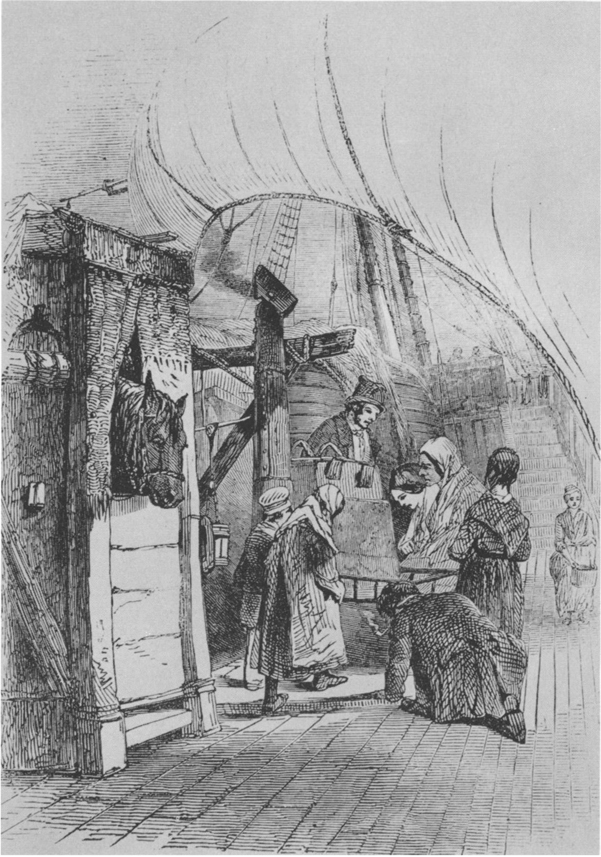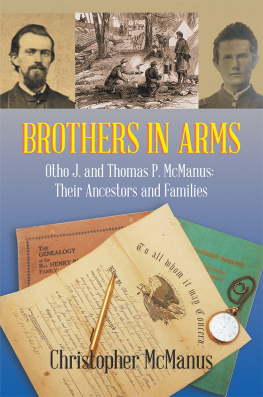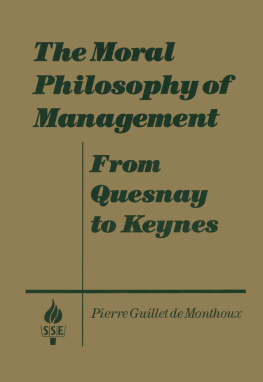Edwin C. Guillet - The Great Migration
Here you can read online Edwin C. Guillet - The Great Migration full text of the book (entire story) in english for free. Download pdf and epub, get meaning, cover and reviews about this ebook. year: 1963, publisher: University of Toronto Press, genre: Home and family. Description of the work, (preface) as well as reviews are available. Best literature library LitArk.com created for fans of good reading and offers a wide selection of genres:
Romance novel
Science fiction
Adventure
Detective
Science
History
Home and family
Prose
Art
Politics
Computer
Non-fiction
Religion
Business
Children
Humor
Choose a favorite category and find really read worthwhile books. Enjoy immersion in the world of imagination, feel the emotions of the characters or learn something new for yourself, make an fascinating discovery.

- Book:The Great Migration
- Author:
- Publisher:University of Toronto Press
- Genre:
- Year:1963
- Rating:5 / 5
- Favourites:Add to favourites
- Your mark:
- 100
- 1
- 2
- 3
- 4
- 5
The Great Migration: summary, description and annotation
We offer to read an annotation, description, summary or preface (depends on what the author of the book "The Great Migration" wrote himself). If you haven't found the necessary information about the book — write in the comments, we will try to find it.
Mr. Guillet has located records never before consulted, found contemporary descriptions not previously used, and presented excerpts from diaries, narratives, letters, and emigrant guidebooks formerly accessible only in museum and archives collections.
The Great Migration — read online for free the complete book (whole text) full work
Below is the text of the book, divided by pages. System saving the place of the last page read, allows you to conveniently read the book "The Great Migration" online for free, without having to search again every time where you left off. Put a bookmark, and you can go to the page where you finished reading at any time.
Font size:
Interval:
Bookmark:
THE GREAT MIGRATION

Illustrated London News, 1849
TEA-TIME AT SEA
On the better ships passengers might obtain tea-water from the cook at six bells.
The Atlantic Crossing by Sailing-ship Since 1770
BY
EDWIN C. GUILLET

Originally published in 1937
by Thomas Nelson and Sons
Second edition 1963
University of Toronto Press
Printed in Canada
To the Memory of My Father
History records three great migrations: the Barbarians who swept over Europe and captured Rome; the Mongols under Genghis Khan; and the Atlantic Migration to the New World. Anglo-Saxon colonization made its most spectacular growth between 1770 and 1890, when eleven million people came from the British Isles to North America, and this book tells the story of the transition.
It is the great period of the sailing-ship, and the slowness of navigation made the Atlantic crossing unpleasant even for those who could afford the best accommodations; while the poor and wretched made the passage in vessels generally unsanitary, verminous, and unseaworthy. But many came with health and high resolve, and tales of heroism and devotion stand out against the murky background.
The conditions under which the great mass of emigrants left the Old Land were a reflection of the times. Famine, unemployment, poverty, and the brutal arm of the law hastened the exodus, and the unwary were exploited and cheated at both ends of the journey and frequently bullied and starved aboard ship as well. But there is a sense of racial destiny in the march from the Old World to the New, and we observe at first hand the adjustment of the immigrant to strange conditions as he proceeded to the interior of the continent and entered upon the hardships of pioneering.
The author has made every effort to locate records never previously consulted, and much of the most valuable material has come from the more obscure sources. A study of the files of periodicals yielded excellent contemporary descriptions not previously used, while similar valuable material is presented by diaries, narratives, letters, and emigrant guidebooks, many of them accessible only in museum and archives collections.
In presentation and arrangement the point of view of the student of history, as well as of the general reader, has been kept in mind, and the source material upon which the work is based has been appended in a form in which it will be of greatest service. The illustrations are all from contemporary sources and provide in themselves an authentic and comprehensive picture of the times.
The author is indebted to several persons who have kindly permitted the use of manuscript material in their possession; these items are acknowledged and described in detail in the bibliography. His thanks are also extended to librarians and archivists in both the United States and Canada who have facilitated research. Among collections of what are somewhat loosely termed Americana and Canadiana, those of the Public Archives of Canada at Ottawa, the Toronto Public Reference Library, the Legislative Library of Ontario, the New York Public Library, the Buffalo Historical Society, and the Detroit Public Library have proved of outstanding value.
EDWIN. C. GUILLET
Toronto, Canada.
May I, 1937
Houseless near a thousand homes, And near a thousand tables pine for want of food.
Oh shame that BREAD should be so dear, and HUMAN LIVES so cheap!
Among the most remarkable incidents in the history of the human race is the great exodus from northern Europe to America during the nineteenth century. Although emigration from the British Isles commenced soon after 1600, for over two centuries it was very limited. Official returns were not made before 1815, but shipping records and other sources indicate a gradually increasing migration from various parts of the United Kingdom after the middle of the eighteenth century. In the 1770s there was a considerable movement from Scotland, especially from the Highlands. The repression following the rising of 1745, depriving the Highlanders of their arms and garb, eventually produced the decadence of chieftains. A contemporary chief, General MacLeod, believed that the fond attachment of the people to their patriarchs would have yielded to no laws had not the chiefs themselves degenerated into mere landlords who became as anxious for increase of rent as the new-made lairdsthe mercantile purchasers of the Lowlands. As a consequence many small tenants were displaced by higher bidders, and those who contracted to pay the excessive rates soon fell into extreme poverty.
About 1771 emigration commenced, quickly reaching the proportions of an epidemic, particularly in the Hebrides. The inducements of property and independence were played up to the full by agents who reaped handsome profits from the transport and settlement of emigrants. The exodus was not restricted to those who had a real grievance, but included large numbers whose condition left little to be desired. General MacLeod successfully led a reactionary movement in his own clan, relieving, wherever possible, the impoverished tenants at the expense of mortgagees and creditors, and impressing upon them the difficulties and dangers of emigration. As a result few members of this clan left for America. References to this early migration are found in two famous travel booksBoswells Journal of a Tour to the Hebrides, and Johnsons Journey to the Western Islands of Scotland. An innkeeper in Glenmorison told Boswell in 1773 that seventy men had left the vicinity for America that year, and that he himself intended to go next year; for that the rent of his farm, which, twenty years ago, was only five pounds, was now raised to twenty pounds. That he could pay ten pounds and live, but no more. Dr. Johnson observed at the same time the general dissatisfaction which is now driving the Highlanders into the other hemisphere, a movement which he denounced as the epidemical fury of emigration.
The greater number of some 20,000 per year who landed at Montreal or Quebec in the early 1770s were Irish. Emigration declined during the wars with Napoleon, because the British Government discouraged any efforts to leave. In 1814 it was estimated that ten persons emigrated to the United States for every one to the British colonies, and the Secretary for the Colonies took steps to divert the flow to Canada. The excess population which led to this decision had existed for many years, but the press gang and the army had absorbed many who had lost their livelihood through the revolution in industry and agriculture. The Napoleonic wars had also caused an inflated condition which had the appearance of prosperity; but when the career of Napoleon ended at Waterloo, so, too, did Britains comparative monopoly of the worlds commerce. The British manufacturers war contracts disappeared and his foreign orders collapsed. The wartime prices of corn dropped almost one-half, and wage rates receded still more. The weight of colossal war debts fell most heavily upon the farmer, and poverty was soon the lot of a large part of the middle and laboring classes throughout the Kingdom. The demand for coal had so fallen that in some districts the miners had no more than a days work a year. The enclosure of waste and common land continued, and the small landowner was fast becoming a rarity. Parish relief became for many the only alternative to starvation, and in 1819 Parliament first voted in favour of emigration as a method of relieving distress, although not until 1824 was it legal for artisans to leave the country.
Next pageFont size:
Interval:
Bookmark:
Similar books «The Great Migration»
Look at similar books to The Great Migration. We have selected literature similar in name and meaning in the hope of providing readers with more options to find new, interesting, not yet read works.
Discussion, reviews of the book The Great Migration and just readers' own opinions. Leave your comments, write what you think about the work, its meaning or the main characters. Specify what exactly you liked and what you didn't like, and why you think so.







